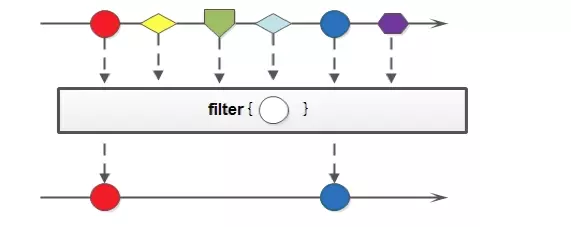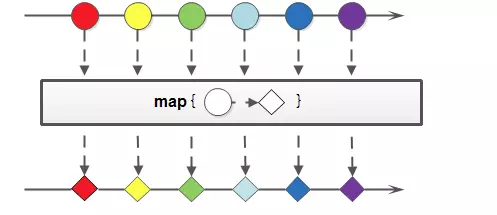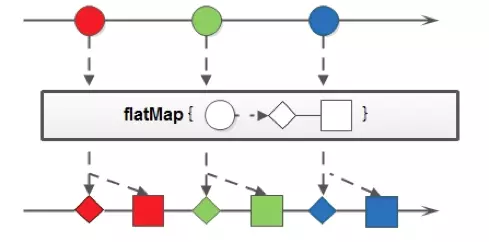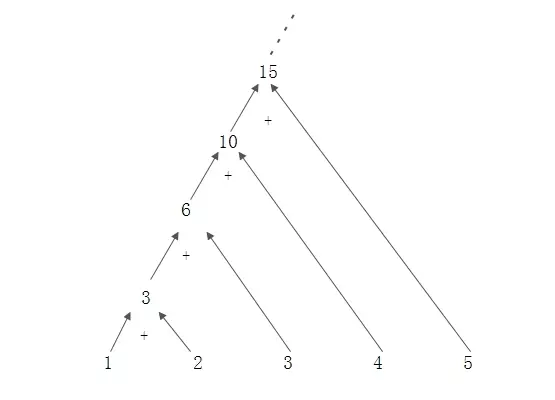Java 8中Stream API集合操作的小技巧!
Stream简介
- Java 8引入了全新的Stream API。这里的Stream和I/O流不同,它更像具有Iterable的集合类,但行为和集合类又有所不同。
- stream是对集合对象功能的增强,它专注于对集合对象进行各种非常便利、高效的聚合操作,或者大批量数据操作。
- 只要给出需要对其包含的元素执行什么操作,比如 “过滤掉长度大于 10 的字符串”、“获取每个字符串的首字母”等,Stream 会隐式地在内部进行遍历,做出相应的数据转换。
为什么要使用Stream
- 函数式编程带来的好处尤为明显。这种代码更多地表达了业务逻辑的意图,而不是它的实现机制。易读的代码也易于维护、更可靠、更不容易出错。
- 高端
实例数据源
public class Data {
private static List<PersonModel> list = null;
static {
PersonModel wu = new PersonModel("wu qi", 18, "男");
PersonModel zhang = new PersonModel("zhang san", 19, "男");
PersonModel wang = new PersonModel("wang si", 20, "女");
PersonModel zhao = new PersonModel("zhao wu", 20, "男");
PersonModel chen = new PersonModel("chen liu", 21, "男");
list = Arrays.asList(wu, zhang, wang, zhao, chen);
}
public static List<PersonModel> getData() {
return list;
}
}
Filter
- 遍历数据并检查其中的元素时使用。
- filter接受一个函数作为参数,该函数用Lambda表达式表示。

/**
* 过滤所有的男性
*/
public static void fiterSex(){
List<PersonModel> data = Data.getData();
//old
List<PersonModel> temp=new ArrayList<>();
for (PersonModel person:data) {
if ("男".equals(person.getSex())){
temp.add(person);
}
}
System.out.println(temp);
//new
List<PersonModel> collect = data
.stream()
.filter(person -> "男".equals(person.getSex()))
.collect(toList());
System.out.println(collect);
}
/**
* 过滤所有的男性 并且小于20岁
*/
public static void fiterSexAndAge(){
List<PersonModel> data = Data.getData();
//old
List<PersonModel> temp=new ArrayList<>();
for (PersonModel person:data) {
if ("男".equals(person.getSex())&&person.getAge()<20){
temp.add(person);
}
}
//new 1
List<PersonModel> collect = data
.stream()
.filter(person -> {
if ("男".equals(person.getSex())&&person.getAge()<20){
return true;
}
return false;
})
.collect(toList());
//new 2
List<PersonModel> collect1 = data
.stream()
.filter(person -> ("男".equals(person.getSex())&&person.getAge()<20))
.collect(toList());
}
Map
- map生成的是个一对一映射,for的作用
- 比较常用
- 而且很简单

/**
* 取出所有的用户名字
*/
public static void getUserNameList(){
List<PersonModel> data = Data.getData();
//old
List<String> list=new ArrayList<>();
for (PersonModel persion:data) {
list.add(persion.getName());
}
System.out.println(list);
//new 1
List<String> collect = data.stream().map(person -> person.getName()).collect(toList());
System.out.println(collect);
//new 2
List<String> collect1 = data.stream().map(PersonModel::getName).collect(toList());
System.out.println(collect1);
//new 3
List<String> collect2 = data.stream().map(person -> {
System.out.println(person.getName());
return person.getName();
}).collect(toList());
}
FlatMap
- 顾名思义,跟map差不多,更深层次的操作
- 但还是有区别的
- map和flat返回值不同
- Map 每个输入元素,都按照规则转换成为另外一个元素。
还有一些场景,是一对多映射关系的,这时需要 flatMap。
- Map一对一
- Flatmap一对多
-
map和flatMap的方法声明是不一样的
- <r> Stream<r> map(Function mapper);
- <r> Stream<r> flatMap(Function> mapper);
- map和flatMap的区别:我个人认为,flatMap的可以处理更深层次的数据,入参为多个list,结果可以返回为一个list,而map是一对一的,入参是多个list,结果返回必须是多个list。通俗的说,如果入参都是对象,那么flatMap可以操作对象里面的对象,而map只能操作第一层。

public static void flatMapString() {
List<PersonModel> data = Data.getData();
//返回类型不一样
List<String> collect = data.stream()
.flatMap(person -> Arrays.stream(person.getName().split(" "))).collect(toList());
List<Stream<String>> collect1 = data.stream()
.map(person -> Arrays.stream(person.getName().split(" "))).collect(toList());
//用map实现
List<String> collect2 = data.stream()
.map(person -> person.getName().split(" "))
.flatMap(Arrays::stream).collect(toList());
//另一种方式
List<String> collect3 = data.stream()
.map(person -> person.getName().split(" "))
.flatMap(str -> Arrays.asList(str).stream()).collect(toList());
}
Reduce
- 感觉类似递归
- 数字(字符串)累加
- 个人没咋用过

public static void reduceTest(){
//累加,初始化值是 10
Integer reduce = Stream.of(1, 2, 3, 4)
.reduce(10, (count, item) ->{
System.out.println("count:"+count);
System.out.println("item:"+item);
return count + item;
} );
System.out.println(reduce);
Integer reduce1 = Stream.of(1, 2, 3, 4)
.reduce(0, (x, y) -> x + y);
System.out.println(reduce1);
String reduce2 = Stream.of("1", "2", "3")
.reduce("0", (x, y) -> (x + "," + y));
System.out.println(reduce2);
}
Collect
- collect在流中生成列表,map,等常用的数据结构
- toList()
- toSet()
- toMap()
- 自定义
/**
* toList
*/
public static void toListTest(){
List<PersonModel> data = Data.getData();
List<String> collect = data.stream()
.map(PersonModel::getName)
.collect(Collectors.toList());
}
/**
* toSet
*/
public static void toSetTest(){
List<PersonModel> data = Data.getData();
Set<String> collect = data.stream()
.map(PersonModel::getName)
.collect(Collectors.toSet());
}
/**
* toMap
*/
public static void toMapTest(){
List<PersonModel> data = Data.getData();
Map<String, Integer> collect = data.stream()
.collect(
Collectors.toMap(PersonModel::getName, PersonModel::getAge)
);
data.stream()
.collect(Collectors.toMap(per->per.getName(), value->{
return value+"1";
}));
}
/**
* 指定类型
*/
public static void toTreeSetTest(){
List<PersonModel> data = Data.getData();
TreeSet<PersonModel> collect = data.stream()
.collect(Collectors.toCollection(TreeSet::new));
System.out.println(collect);
}
/**
* 分组
*/
public static void toGroupTest(){
List<PersonModel> data = Data.getData();
Map<Boolean, List<PersonModel>> collect = data.stream()
.collect(Collectors.groupingBy(per -> "男".equals(per.getSex())));
System.out.println(collect);
}
/**
* 分隔
*/
public static void toJoiningTest(){
List<PersonModel> data = Data.getData();
String collect = data.stream()
.map(personModel -> personModel.getName())
.collect(Collectors.joining(",", "{", "}"));
System.out.println(collect);
}
/**
* 自定义
*/
public static void reduce(){
List<String> collect = Stream.of("1", "2", "3").collect(
Collectors.reducing(new ArrayList<String>(), x -> Arrays.asList(x), (y, z) -> {
y.addAll(z);
return y;
}));
System.out.println(collect);
}
Optional
- Optional 是为核心类库新设计的一个数据类型,用来替换 null 值。
- 人们对原有的 null 值有很多抱怨,甚至连发明这一概念的Tony Hoare也是如此,他曾说这是自己的一个“价值连城的错误”
- 用处很广,不光在lambda中,哪都能用
- Optional.of(T),T为非空,否则初始化报错
- Optional.ofNullable(T),T为任意,可以为空
- isPresent(),相当于 !=null
- ifPresent(T), T可以是一段lambda表达式 ,或者其他代码,非空则执行
public static void main(String[] args) {
PersonModel personModel=new PersonModel();
//对象为空则打出 -
Optional<Object> o = Optional.of(personModel);
System.out.println(o.isPresent()?o.get():"-");
//名称为空则打出 -
Optional<String> name = Optional.ofNullable(personModel.getName());
System.out.println(name.isPresent()?name.get():"-");
//如果不为空,则打出xxx
Optional.ofNullable("test").ifPresent(na->{
System.out.println(na+"ifPresent");
});
//如果空,则返回指定字符串
System.out.println(Optional.ofNullable(null).orElse("-"));
System.out.println(Optional.ofNullable("1").orElse("-"));
//如果空,则返回 指定方法,或者代码
System.out.println(Optional.ofNullable(null).orElseGet(()->{
return "hahah";
}));
System.out.println(Optional.ofNullable("1").orElseGet(()->{
return "hahah";
}));
//如果空,则可以抛出异常
System.out.println(Optional.ofNullable("1").orElseThrow(()->{
throw new RuntimeException("ss");
}));
// Objects.requireNonNull(null,"is null");
//利用 Optional 进行多级判断
EarthModel earthModel1 = new EarthModel();
//old
if (earthModel1!=null){
if (earthModel1.getTea()!=null){
//...
}
}
//new
Optional.ofNullable(earthModel1)
.map(EarthModel::getTea)
.map(TeaModel::getType)
.isPresent();
// Optional<EarthModel> earthModel = Optional.ofNullable(new EarthModel());
// Optional<List<PersonModel>> personModels = earthModel.map(EarthModel::getPersonModels);
// Optional<Stream<String>> stringStream = personModels.map(per -> per.stream().map(PersonModel::getName));
//判断对象中的list
Optional.ofNullable(new EarthModel())
.map(EarthModel::getPersonModels)
.map(pers->pers
.stream()
.map(PersonModel::getName)
.collect(toList()))
.ifPresent(per-> System.out.println(per));
List<PersonModel> models=Data.getData();
Optional.ofNullable(models)
.map(per -> per
.stream()
.map(PersonModel::getName)
.collect(toList()))
.ifPresent(per-> System.out.println(per));
}
并发
- stream替换成parallelStream或 parallel
- 输入流的大小并不是决定并行化是否会带来速度提升的唯一因素,性能还会受到编写代码的方式和核的数量的影响
- 影响性能的五要素是:数据大小、源数据结构、值是否装箱、可用的CPU核数量,以及处理每个元素所花的时间
//根据数字的大小,有不同的结果
private static int size=10000000;
public static void main(String[] args) {
System.out.println("-----------List-----------");
testList();
System.out.println("-----------Set-----------");
testSet();
}
/**
* 测试list
*/
public static void testList(){
List<Integer> list = new ArrayList<>(size);
for (Integer i = 0; i < size; i++) {
list.add(new Integer(i));
}
List<Integer> temp1 = new ArrayList<>(size);
//老的
long start=System.currentTimeMillis();
for (Integer i: list) {
temp1.add(i);
}
System.out.println(+System.currentTimeMillis()-start);
//同步
long start1=System.currentTimeMillis();
list.stream().collect(Collectors.toList());
System.out.println(System.currentTimeMillis()-start1);
//并发
long start2=System.currentTimeMillis();
list.parallelStream().collect(Collectors.toList());
System.out.println(System.currentTimeMillis()-start2);
}
/**
* 测试set
*/
public static void testSet(){
List<Integer> list = new ArrayList<>(size);
for (Integer i = 0; i < size; i++) {
list.add(new Integer(i));
}
Set<Integer> temp1 = new HashSet<>(size);
//老的
long start=System.currentTimeMillis();
for (Integer i: list) {
temp1.add(i);
}
System.out.println(+System.currentTimeMillis()-start);
//同步
long start1=System.currentTimeMillis();
list.stream().collect(Collectors.toSet());
System.out.println(System.currentTimeMillis()-start1);
//并发
long start2=System.currentTimeMillis();
list.parallelStream().collect(Collectors.toSet());
System.out.println(System.currentTimeMillis()-start2);
}
调试
- list.map.fiter.map.xx 为链式调用,最终调用collect(xx)返回结果
- 分惰性求值和及早求值
- 判断一个操作是惰性求值还是及早求值很简单:只需看它的返回值。如果返回值是 Stream,那么是惰性求值;如果返回值是另一个值或为空,那么就是及早求值。使用这些操作的理想方式就是形成一个惰性求值的链,最后用一个及早求值的操作返回想要的结果。
- 通过peek可以查看每个值,同时能继续操作流
private static void peekTest() {
List<PersonModel> data = Data.getData();
//peek打印出遍历的每个per
data.stream().map(per->per.getName()).peek(p->{
System.out.println(p);
}).collect(toList());
}
正文到此结束
热门推荐
相关文章
Loading...











![[HBLOG]公众号](https://www.liuhaihua.cn/img/qrcode_gzh.jpg)

